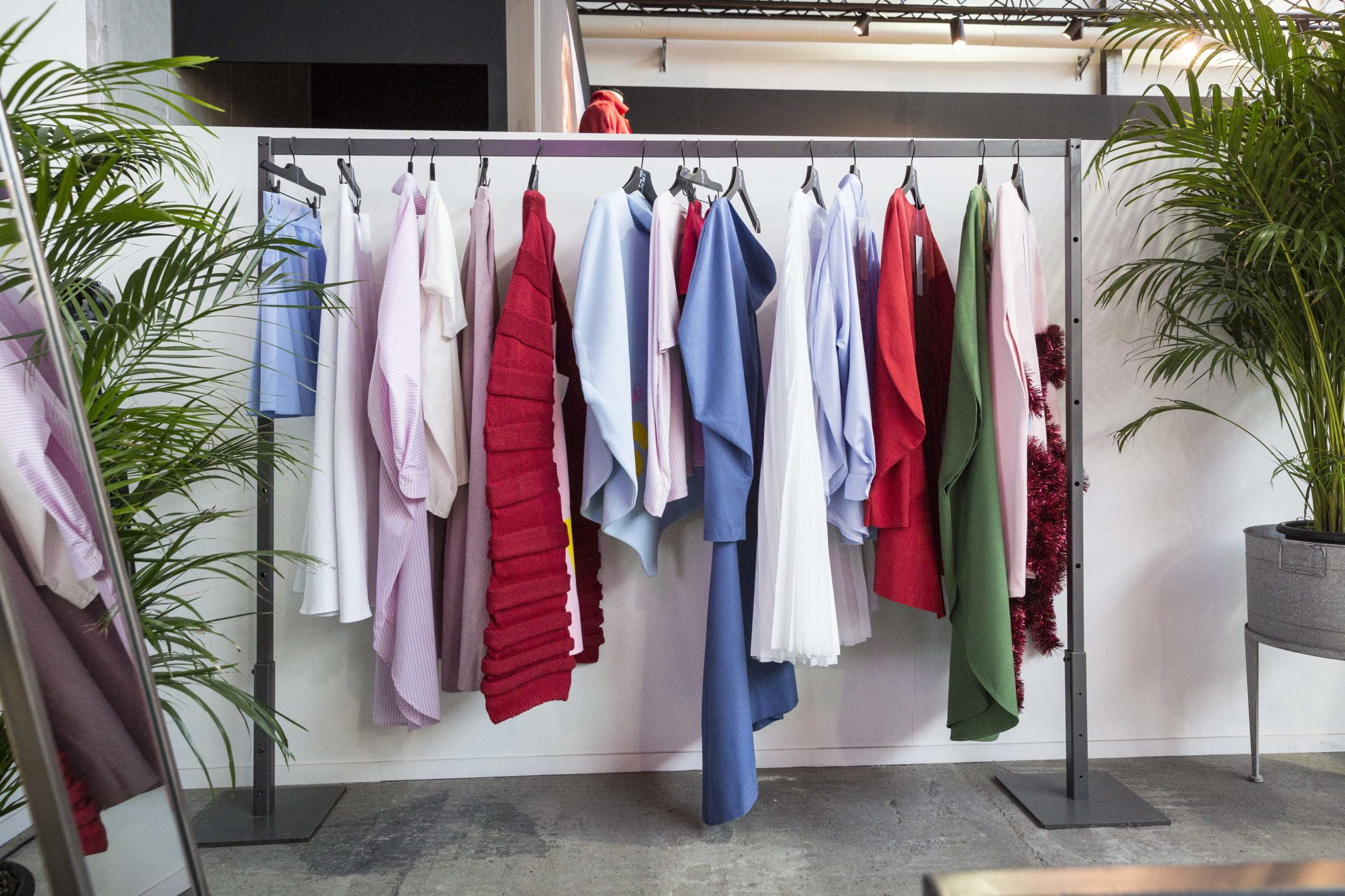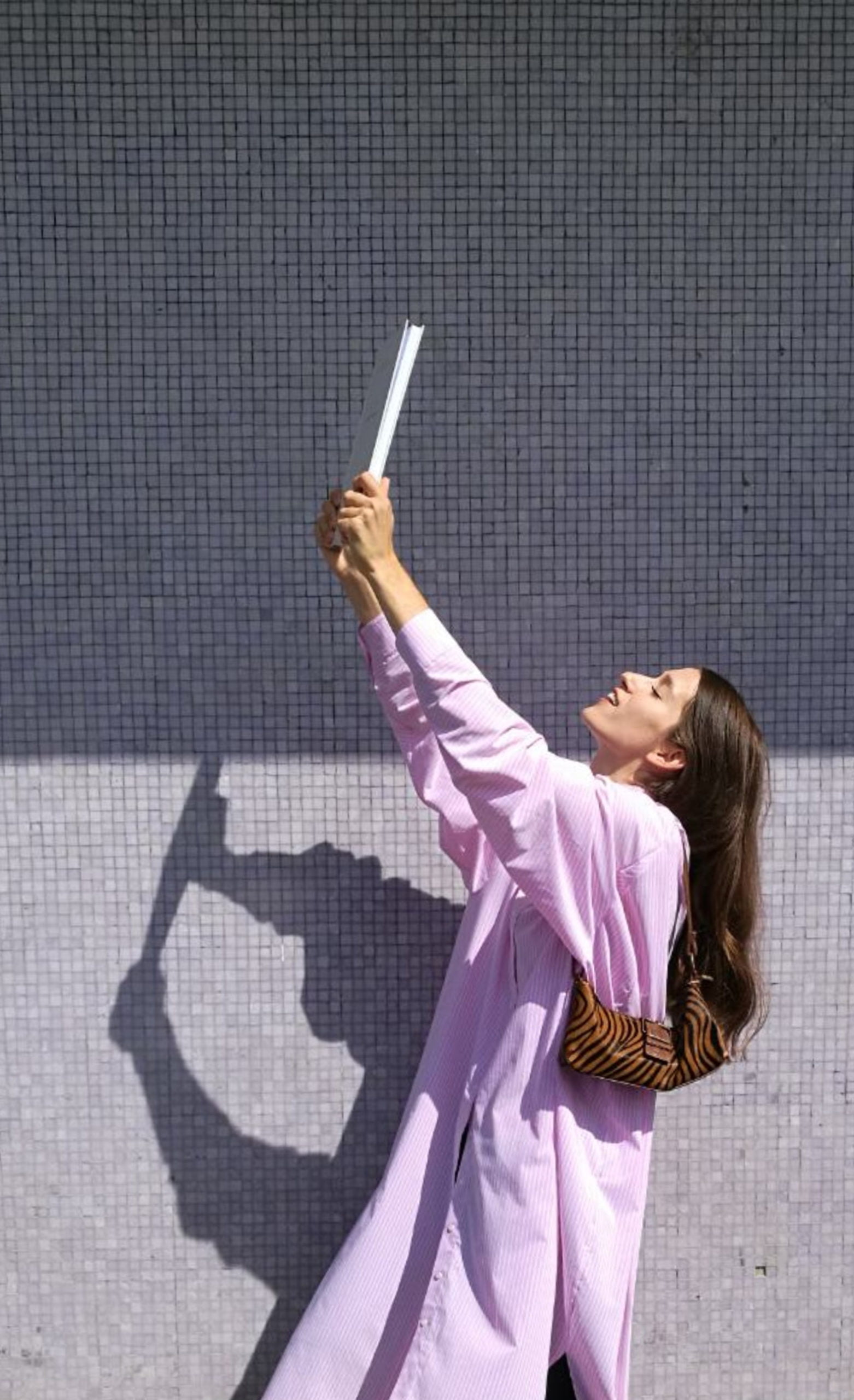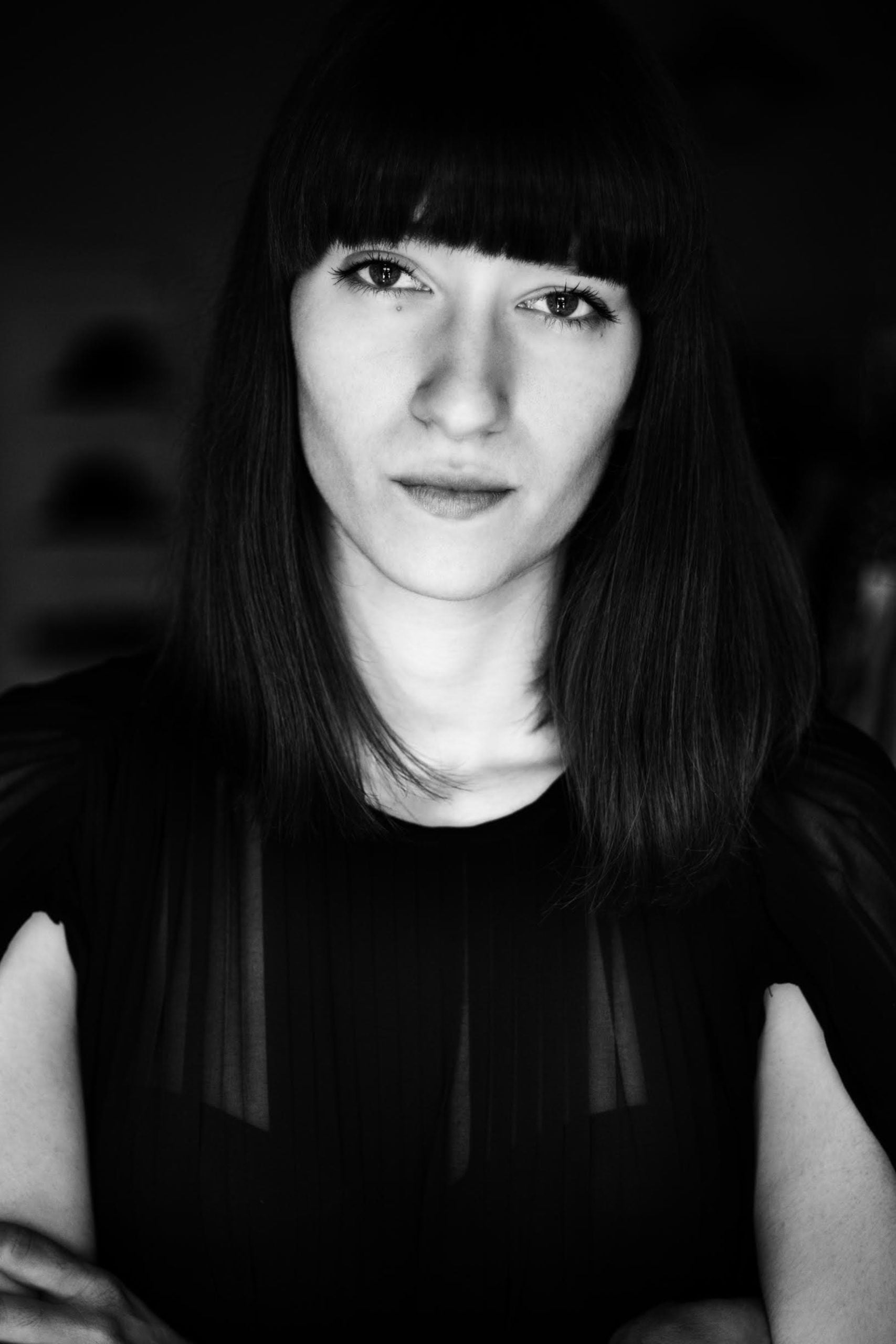
Sofija Urumović, 28, is a young but successful fashion designer. Her interest in fashion started early. “As a child, my dream was to be omnilingual, which means having the ability to speak, or to understand, all languages. It goes without saying that this is impossible; however, over the years I have realised that fashion is one of the most powerful and universal languages in the world and that it could be used as a great means of self-expression and communication,” she says.

As a result, when Sofija turned 18, she decided to study fashion and went on to finish both Bachelor’s and Master’s degrees. Her early experience with fashion was solely from magazines, so she thought of fashion as a fairy tale. However, she says that fashion is not an easy craft and later she encountered many challenges. Most significant of these was the need for more financial resources and a network of associates to present her work to a broader audience. The latter was addressed with the support of an EU-funded project.
“Over the years I have realised that fashion is one of the most powerful and universal languages in the world and that it could be used as a great means of self-expression and communication.”
The world of fashion opens
Through an open call, Sofija was chosen by United Fashion project partner, Fashion Weekend Skopje, to represent the Balkan region. Sofija has only positive words for the project, saying that the whole experience has been “amazing”. As part of the project, she – like young fashion designers from other countries – was provided with an opportunity to showcase her work during the Berlin Fashion Week in 2018 and ModaLisboa in 2020.
Making connections
“In Berlin, I met this great agent for the German market who gave me very valuable advice from a business perspective, while in Lisbon I was able to witness a smaller team organising a big fashion event and offering a big platform for young creatives,” she says.
Showcasing her work on a platform like the Berlin Fashion Week is an experience she describes as the dream of every young fashion designer, but Sofija also had other benefits from the project. She says perhaps the most important one is making new connections, and meeting people with whom she says she is “regularly in touch for friendship but also future professional cooperation”.

“I think what this whole pandemic has taught us is that what we are doing in general to the planet we live on is really irresponsible and so shameful. We should change the way we function.”
Right now, Sofija is developing some new ideas, but she wants to keep her brand small and grow steadily. “I think what this whole pandemic has taught us is that what we are doing in general to the planet we live on is really irresponsible and so shameful. We should change the way we function. In particular, the fashion industry has so many flaws. Now the situation has forced everyone, even the big players, who are the game-changers of the industry, to rethink the way we work and to set new foundations for a new fashion system,” she says.
Through several international network events and trans-disciplinary training workshops, more than 150 fashion designers had the opportunity to benefit from the United Fashion project by showcasing their collections, getting to know and understand several European markets, and developing new skills in fashion tech, sustainable fashion, production, craftsmanship and business models.
United Fashion is carried out by a cluster of European fashion support associations: the Baltic Fashion Federation (Latvia), Fashion Council Germany, Fashion Weekend Skopje (North Macedonia), Flanders DC (Belgium), MAD Brussels (Belgium), Maison de Mode (France), and ModaLisboa (Portugal). The aim of the project is to enhance fashion designer culture across Europe so that it is more business-oriented, enhancing competitiveness internationally without limiting creativity. The United Fashion project is supported through Creative Europe programme of the European Union.

As a result, when Sofija turned 18, she decided to study fashion and went on to finish both Bachelor’s and Master’s degrees. Her early experience with fashion was solely from magazines, so she thought of fashion as a fairy tale. However, she says that fashion is not an easy craft and later she encountered many challenges. Most significant of these was the need for more financial resources and a network of associates to present her work to a broader audience. The latter was addressed with the support of an EU-funded project.
“Over the years I have realised that fashion is one of the most powerful and universal languages in the world and that it could be used as a great means of self-expression and communication.”
The world of fashion opens
Through an open call, Sofija was chosen by United Fashion project partner, Fashion Weekend Skopje, to represent the Balkan region. Sofija has only positive words for the project, saying that the whole experience has been “amazing”. As part of the project, she – like young fashion designers from other countries – was provided with an opportunity to showcase her work during the Berlin Fashion Week in 2018 and ModaLisboa in 2020.
Making connections
“In Berlin, I met this great agent for the German market who gave me very valuable advice from a business perspective, while in Lisbon I was able to witness a smaller team organising a big fashion event and offering a big platform for young creatives,” she says.
Showcasing her work on a platform like the Berlin Fashion Week is an experience she describes as the dream of every young fashion designer, but Sofija also had other benefits from the project. She says perhaps the most important one is making new connections, and meeting people with whom she says she is “regularly in touch for friendship but also future professional cooperation”.

Right now, Sofija is developing some new ideas, but she wants to keep her brand small and grow steadily. “I think what this whole pandemic has taught us is that what we are doing in general to the planet we live on is really irresponsible and so shameful. We should change the way we function. In particular, the fashion industry has so many flaws. Now the situation has forced everyone, even the big players, who are the game-changers of the industry, to rethink the way we work and to set new foundations for a new fashion system,” she says.
Through several international network events and trans-disciplinary training workshops, more than 150 fashion designers had the opportunity to benefit from the United Fashion project by showcasing their collections, getting to know and understand several European markets, and developing new skills in fashion tech, sustainable fashion, production, craftsmanship and business models.
United Fashion is carried out by a cluster of European fashion support associations: the Baltic Fashion Federation (Latvia), Fashion Council Germany, Fashion Weekend Skopje (North Macedonia), Flanders DC (Belgium), MAD Brussels (Belgium), Maison de Mode (France), and ModaLisboa (Portugal). The aim of the project is to enhance fashion designer culture across Europe so that it is more business-oriented, enhancing competitiveness internationally without limiting creativity. The United Fashion project is supported through Creative Europe programme of the European Union.
Please wait while your video is being uploaded...
Don't close this window!